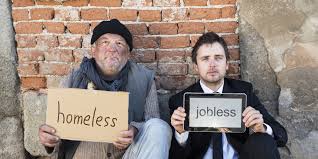What’s So Great about Being Poor?
 |
| Google Image |
Although they worked hard, they were extremely
poor. They lived in one- or two-room adobe houses. A few had bicycles and a
very few had motorcycles. Virtually none had cars or trucks and none that I
knew had electricity or indoor plumbing.
They were also treated like non-citizens in a
country where their ancestors long predated the Spanish colonists. They had
little access to health care or dental care where tuberculosis killed children
in almost every family. They were treated like children by the courts, and
police protection was almost non-existent.
At an altitude of 12,000 feet above sea level,
average daytime temperatures ranged from 60 to 70 degrees F but at night it
routinely fell to freezing. Consequently, frequent bathing was uncommon and
when they gathered for the Eucharist - commonly called the Mass by Catholics -
which we held daily in the stone, colonial-era church, there was a strong
communal body odor.
Loved Celebrating with Them
But as strange as it may seem, I loved celebrating the Eucharist with them. I felt like a party interloper or someone who snuck into an audience with the pope or a president and was rewarded with gifts that should have gone only to those invited. I felt that God heard my prayer because I was among the poor, his favorite people.
But as strange as it may seem, I loved celebrating the Eucharist with them. I felt like a party interloper or someone who snuck into an audience with the pope or a president and was rewarded with gifts that should have gone only to those invited. I felt that God heard my prayer because I was among the poor, his favorite people.
I know. God loves everybody. And, really, what’s
so great about being poor? They have no power, no resources and often no
self-esteem. They are uniformly disparaged by many middle- and upper-class
people. Why do religious people often talk as if the poor are somehow special?
It’s another area in which
faith opens eyes that may be closed to others. In the Judeo-Christian
tradition, the poor ARE special. It may seem like mindless sentimentality to
some, but it’s true. Believers who doubt it need to take a look at the Bible -
where the poor are mentioned hundreds of times - and the teachings of most
Christians and Jews.
 |
| Google Image |
The gospel writer Matthew
tells of John the Baptist sending followers to Jesus to ask, “Are you he who is
to come (the Messiah), or shall we look for another?” Jesus answers, “Go and
tell John what you hear and see: the blind receive their sight and the lame
walk … and the poor have good news preached to them.”
This special place is
embodied in the term “preferential option for the poor,” first articulated by
Peruvian theologian, Gustavo Gutiérrez, and later adopted by bishops’
conferences in Latin America. It has since been the teaching of the
Catholic Church and other Christian churches. It means people searching for God
in the Christian tradition, including those who regularly pray and attend
church services, can’t be true God-seekers if they ignore the physical and
spiritual needs of the poor.
Political and Social Decisions
And this concern must be shown in our political and social decisions, no matter our political party or social status. We must keep them in mind when voting, when dealing with employees, when deciding on decent wages and social, judicial and medical services.
And this concern must be shown in our political and social decisions, no matter our political party or social status. We must keep them in mind when voting, when dealing with employees, when deciding on decent wages and social, judicial and medical services.
Some might worry that this
idea reduces religion to an earthly goal, and some see it as “socialism,” as if
it should be seen in political terms. Or, they believe it encourages “class
warfare.” In my view, it has nothing to do with these ideas but is an essential
element of traditional Christianity and Judaism that seekers of God can’t
ignore.
The feeling I had when
worshipping with the poor should be shared by everyone searching for
God. No, there’s nothing, great about being poor – unless being among God’s
favorites counts for nothing.



Comments
Post a Comment